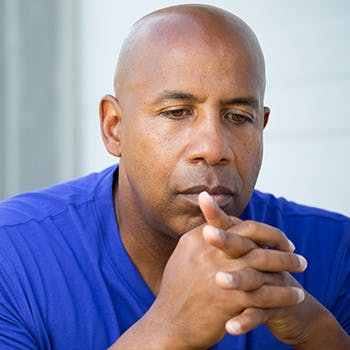6 Reasons You Have an Itchy Butt

You pay attention to your kid’s tushie, but what about your own?
If your kid told you her butt was itchy, you’d check it out ASAP, right? So don’t ignore your own butt when it’s trying to tell you something. “Why suffer for no reason?” asks Dr. Tsippora Shainhouse of the Dermatology Institute and Skin Care Center in Los Angeles. “People are embarrassed to be scratching their bum, but it’s more common than you think.” Here, we get to the (forgive us) bottom of the most common reasons your backside might be itchy—and how to make it stop.
WHAT YOU CAN DO
Allergic contact dermatitis
This is when some ingredient you're putting on your body is triggering an allergic skin reaction, Dr. Shainhouse says—and the culprit might even be coming from a natural or organic product. "You don't usually develop a rash after the first exposure," she says, "but repeated exposure sensitizes the skin in some people." Before you throw out every body product in your bathroom, start with Dr. Shainhouse's list of likely offenders: "These rashes are more likely to be caused by leave-on products–like salves, lotions, or sprays—rather than quick wash-off products like soap or shampoo."
Hemorrhoids
Chances are, if you have these swollen veins in your rectal area, you already know it. But in case they're new to you, "hemorrhoids can cause bleeding, itching, and difficulty cleaning after bowel movement," says Dr. Roshini Rajapaksa, a gastroenterologist and clinical associate professor at NYU Langone Health. Dr. Rajapaksa advises taking a two-step approach to reducing the itch: first, manage the hemorrhoids themselves by reducing constipation. "Get more fiber, in your diet or [via] supplements," she says. "And drinking enough water is very important, too." For more rapid relief, look to OTC products like Ointment, which relieves itching and discomfort and helps shrink swollen tissue. You can also try a product like Medicated wipes, which soothe with witch hazel and aloe.
Anal fissures
Constipation can do more than produce hemorrhoids; it can also create anal fissures. (More fiber, please!) These tiny, paper cut-like tears in the skin around the anus and anal sphincter are fairly common, Dr. Shainhouse says. Two clues you might have anal fissures: stinging pain when you poop and fine streaks of bright red blood on your toilet paper. "The best treatment is to calm the area by taking sitz baths and using soothing petroleum jelly, and let them heal," Dr. Shainhouse recommends. (Moms, you may already be familiar with sitz baths from after you gave birth.)
Psoriasis
This autoimmune inflammatory condition shows up in the form of thick pink-white, scaly plaques on your skin. "While psoriasis favors the elbows, knees and scalp, a secret hiding place is the buttock cleft and anal area," Dr. Shainhouse says. "It could be painful, but more frequently it's itchy." If you have a rash that just won't quit and/or you know psoriasis runs in your family, see your dermatologist.
Pinworms
We really hate to mention this, but since kids can get pinworms, and you have kids… "Tiny pinpoint worms can grow in the gut and come out of the anus in the early hours of the morning, causing an itchy, irritated anus when you wake up," Dr. Shainhouse explains. "It's super-common in kids, and also quite contagious through fecal-oral contact, like if someone didn't wash their hands." So if the whole house is itchy, ask your doctor about this potential pathogen. The good news, Dr. Shainhouse says, is that it's easily treated with oral medication once diagnosed.
Strep infection
Not-so-fun fact: The same bacteria that causes a strep infection in your throat can also target your backside. "Group A B-hemolytic streptococcal bacteria can actually infect the anal area," Dr. Shainhouse says, "causing an itchy or painful red rash inside the buttocks." If you or your kids have recently been diagnosed with strep throat and you develop this symptom, call your doctor. They'll test for the infection with the same type of swab used for your throat, and treatment is the same course of oral antibiotic.
Bottom line (we can't stop!): If you're itching back there, take action. "If you know you have a specific condition, treat it yourself," Dr. Shainhouse says. But if you can't figure it out, head to your general practitioner or specialist—and don't be embarrassed. "I examine those parts all the time," she promises. "If something's bothering you, bring it up."
© Meredith Corporation. All rights reserved.



